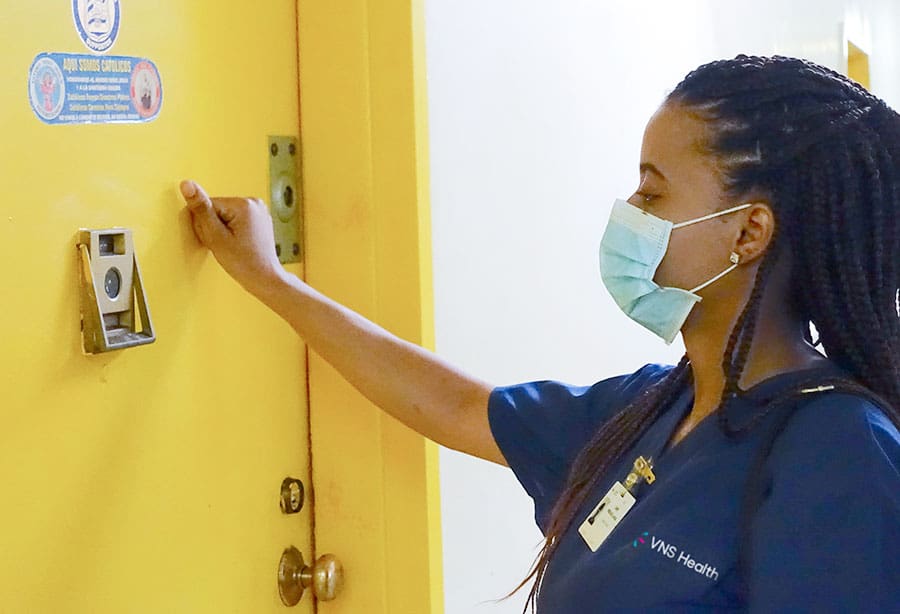
“I’m proud to be a home health care worker… without us I don’t know what people would have done during the pandemic.”
This statement sums up the unsung heroism of America’s home health aides (HHAs) during the COVID-19 pandemic. The quote from an HHA with VNS Health is part of a just-released study by the Center for Home Care Policy & Research at VNS Health on the challenges encountered by HHAs over the course of the pandemic. The research team also met with industry leaders and other stakeholders to develop recommendations on how to better protect and support the HHA workforce during future public health crises.
The study’s roots trace back to the early days of the pandemic, when Margaret McDonald, Associate Vice President at the Research Center, and her colleagues were struck by the fact that there was no mention of home health aides as New York’s health care heroes were receiving accolades.
“While there was well-deserved recognition of people working in hospitals, home health aides were also out there the whole time, going into people’s homes and working hard to keep them out of the hospitals,” says McDonald. “We really wanted to bring their experiences to the forefront to raise awareness for this workforce and what they’re facing.”
McDonald notes that the HHAs in the study were eager to contribute to the conversation. More than 1,300 aides answered the Center’s survey questions, and dozens more participated in interviews and focus groups. Key takeaways included the finding that throughout the pandemic, most HHAs provided care continuously to their homebound patients. In fact, seven out of ten aides surveyed said they never turned down work during the pandemic.
COVID-related challenges noted by HHAs in the study included the industry-wide shortage of personal protective equipment (PPE) at the start of the pandemic. Aides also reported significant issues with public transportation, ranging from service interruptions to close proximity to other passengers.
The study’s findings also highlighted the financial stresses placed on aides by the pandemic, and the importance of effective communication—between HHAs and their supervisors, and between aides and the agencies employing them—as a support mechanism. Above all, the researchers emphasize that HHAs “must be recognized as an essential part of the health care system.”
“As somebody who looked at the data and transcripts, it was really beautiful to see the resilience of the HHAs and their willingness to work in a challenging situation,” says McDonald. “They were out there because their patients needed them. They understand their value, and we need to make sure that others do, too.”



